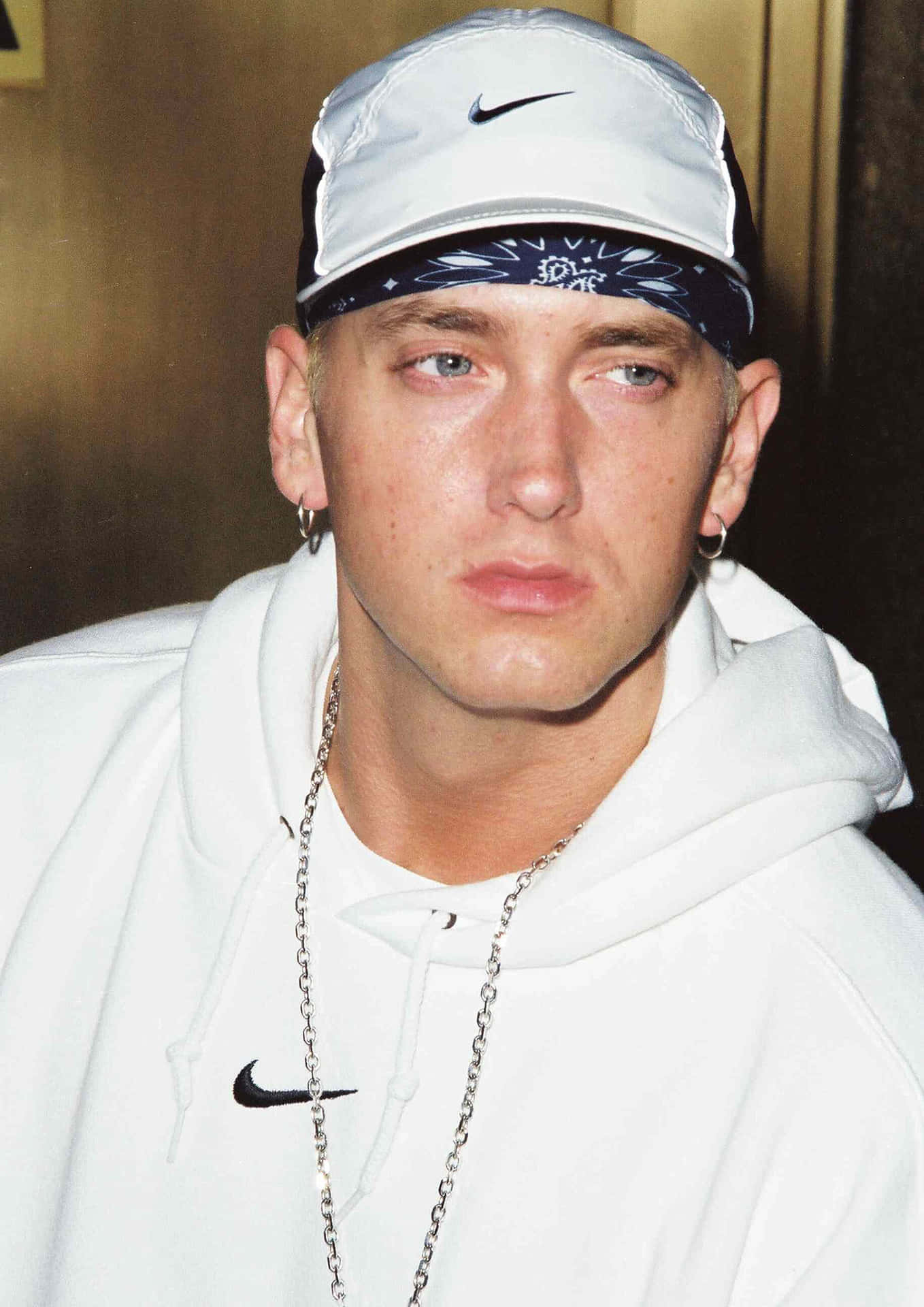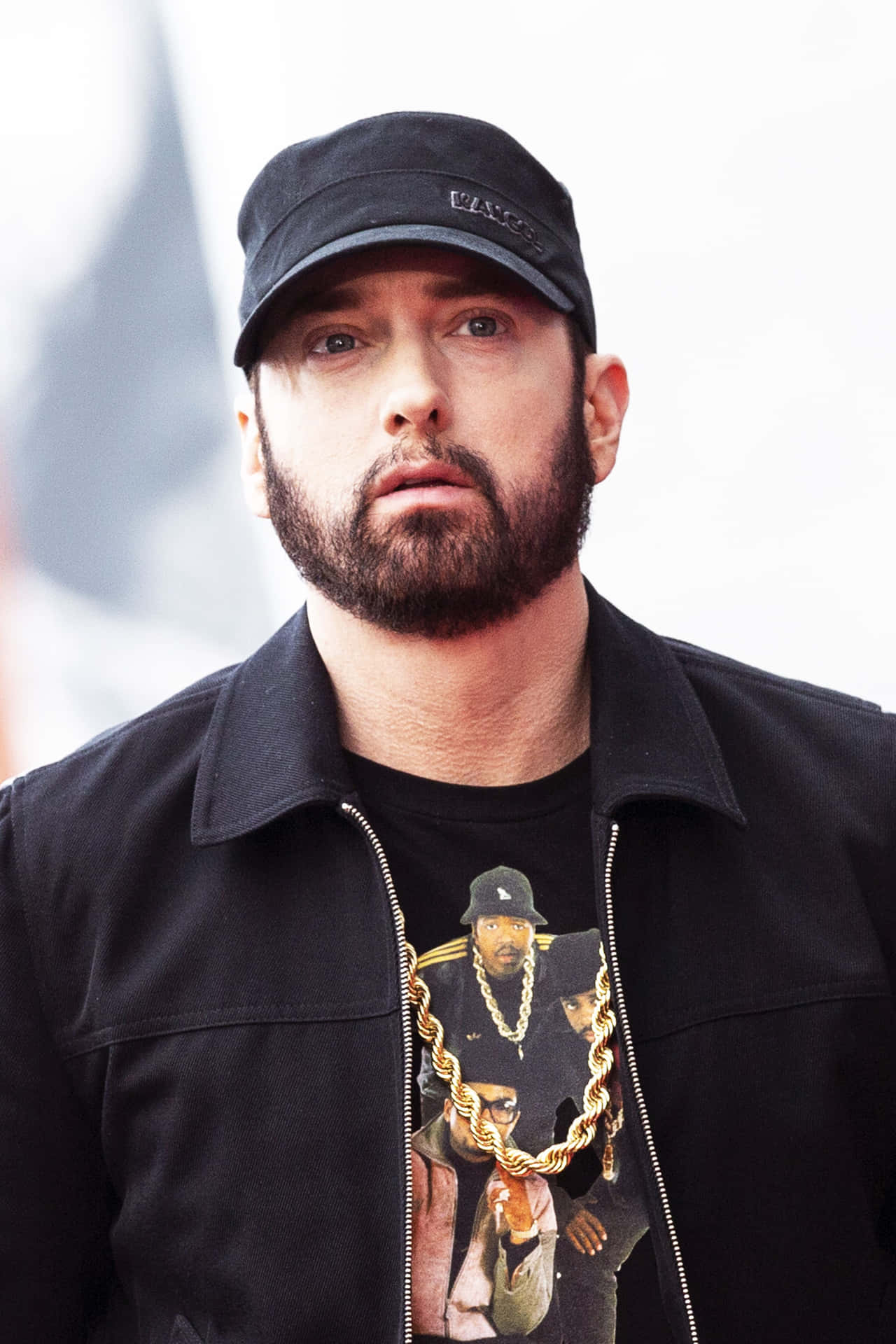The year 2002 brought us something truly special, a film that pulled back the curtain on a specific part of the music world, and it starred someone many already knew quite well. It's almost as if this movie, "8 Mile," gave us a real glimpse into the struggles and triumphs of a young artist trying to make a name for himself. People still talk about it, you know, and for good reason, too. It felt very much like a story that needed to be told, and it connected with so many folks, showing a different side of a musician who had already achieved quite a bit of fame.
This film, "8 Mile," was more than just a picture; it was a moment, a point in time where a lot of things came together for Marshall Mathers, better known as Eminem. It showed a raw, often difficult path, and it really helped people get a sense of where his music came from, or so it seemed. The story had a powerful impact, making many viewers feel a deeper connection to the artist and his art. It's pretty interesting, actually, how a movie can do that, making the person on screen feel more human, more relatable, in a way.
So, we're going to spend some time looking back at that period, at the movie, and at the artist himself. We'll explore the impact of "8 Mile 2002," talk about the music, and even touch on some of the behind-the-scenes happenings that shaped this era for Eminem. It's a chance to revisit a time when his work was really hitting its stride, and to think about why it still holds a spot in people's memories, basically. We'll go through some of the stories that have come out since, giving us a fuller picture of what that time was like for him.
- Konstantin Koltsov Net Worth
- Grinch Jim Carrey
- Last Resort Lyrics
- Vma 2024 Winners
- Ann Hathaway Superbowl
Table of Contents
- The Man Behind the Music - Marshall Mathers
- Why Does 8 Mile 2002 Still Resonate So Much?
- How Did Eminem's Rap Style Stand Out in 2002?
- Was Eminem Just a Brand Back in 2002?
- What Was Life Like Behind the Scenes for Eminem Around 8 Mile 2002?
- The Unintended Releases - Leaks and Legal Troubles
The Man Behind the Music - Marshall Mathers
Before the movie "8 Mile" hit theaters in 2002, a lot of people already knew Eminem, the famous music maker. But the film, in some respects, gave us a closer look at the person behind the stage name, Marshall Bruce Mathers III. He grew up in a tough part of Detroit, and his early years were pretty challenging, which, you know, shaped a lot of his art. His background is a big part of why his music feels so real to so many listeners, actually, because he often talks about his own experiences, struggles, and triumphs in his songs.
He started out in the underground music scene, doing rap battles and trying to get noticed. It was a long road, full of hard knocks and moments of nearly giving up. But he kept at it, and his unique way with words and his passionate delivery really made him stand out. It's interesting to consider how much effort goes into becoming a well-known artist, and for him, that journey was particularly rough, so. He didn't just appear overnight; there was a whole lot of work and dedication that went into building his skill and finding his voice, basically.
His story is one that shows how someone can overcome many difficult things to achieve something truly remarkable. The film "8 Mile" captures some of this spirit, even if it's a fictionalized account, it's pretty much based on the feelings and experiences of that time. You see a young man trying to find his place, using his words as a way to fight his way through a tough situation. It's a powerful narrative, and it really connects with people who have faced their own challenges, too, because it speaks to that universal desire to be heard and understood.
- New Fish Species Discovered
- Alan Rickman Wife
- Is The View Still On The Air
- Kyle Jenner
- Justin Timberlake Friends With Benefits Movie
Personal Details and Early Life
Marshall Mathers, known to the world as Eminem, has a life story that’s been pretty much open for everyone to hear through his songs. Born in Missouri, he spent a lot of his childhood moving around, eventually settling in Michigan, which became a significant part of his identity. His experiences growing up in a rather difficult environment are often reflected in his work, giving his lyrics a raw and very personal touch. This background, you know, really helped shape the kind of artist he became, someone who wasn't afraid to talk about the things that hurt or made him angry.
His early life was marked by a fair bit of instability, and these early years definitely played a part in forming his perspective on the world. He started getting into hip-hop at a young age, finding a way to express himself through words and rhythm. It was a kind of escape, a way to make sense of the chaos around him, sort of. This passion for music became his main focus, and he poured a lot of his energy into writing and performing, even when things were tough. It’s pretty clear that music was more than just a hobby for him; it was a lifeline, in a way.
He's a father, and his relationship with his daughter, Hailie, has been a recurring theme in his music, showing a very human side to the artist. His personal life, including his struggles and relationships, has often been a source of inspiration for his songs, making his art feel very honest and relatable. It’s interesting how he uses his own experiences to connect with so many listeners, making them feel like they know him, or at least understand where he's coming from, you know, even if they've never met him. This openness is a big part of why his fans feel such a strong connection to his work.
| Detail | Information |
|---|---|
| Full Name | Marshall Bruce Mathers III |
| Known As | Eminem, Slim Shady |
| Birth Date | October 17, 1972 |
| Birthplace | St. Joseph, Missouri, USA |
| Occupations | Rapper, Songwriter, Record Producer, Actor |
| Associated Act | D12, Bad Meets Evil |
| Notable Film | 8 Mile (2002) |
Why Does 8 Mile 2002 Still Resonate So Much?
The film "8 Mile," released in 2002, really captured something special, and people still talk about it today. It's not just a movie about music; it's a story about finding your voice and fighting for your dreams, even when everything seems to be against you. This message, you know, is something that speaks to almost everyone, regardless of their background or what kind of music they listen to. It showed a side of Detroit that many hadn't seen, and it painted a picture of struggle and determination that felt very real, basically.
Part of its lasting appeal comes from the way it showed the raw, unpolished world of underground rap battles. It wasn't just about the rhymes; it was about the quick thinking, the pressure, and the courage it took to stand up in front of a crowd and just, you know, lay it all out there. The performances felt incredibly genuine, and that authenticity is something that really sticks with you. It made the audience feel like they were right there in the room, watching these intense lyrical showdowns unfold, which was a pretty unique experience for a film, actually.
And then there's the character of B-Rabbit, played by Eminem himself, which felt so incredibly personal and honest. People could connect with his struggles, his doubts, and his burning desire to prove himself. It wasn't a glamorous portrayal of success; it was a gritty, real look at the hard work and setbacks that often come before any big wins. This kind of story, where the hero is someone who truly has to earn their place, is always going to be powerful, so. It gives people hope and reminds them that perseverance can lead to great things, even when the odds seem stacked against you.
How Did Eminem's Rap Style Stand Out in 2002?
In 2002, around the time "8 Mile" came out, Eminem's way of rapping was, quite honestly, pretty distinctive. He had a particular flow, a way of putting words together that sounded both clever and incredibly aggressive, which was, you know, a bit different from what many others were doing. His ability to tell a story within his verses, often switching up his speed and tone, made his music feel very dynamic and unpredictable. It wasn't just about the words; it was about how he delivered them, how he bent and twisted the language to fit his feelings, basically.
He had a knack for intricate rhymes and complex wordplay that really made listeners pay attention. His verses were often packed with multiple meanings and clever punchlines, showing a deep understanding of language and how to use it to make an impact. This kind of lyrical skill, honestly, set him apart from a lot of his peers at the time. He wasn't just saying things; he was crafting them, making sure every line hit with purpose and precision, which, you know, takes a lot of practice and a real gift for words.
The raw emotion he put into his delivery also made his style stand out. Whether he was angry, sad, or just being playful, you could feel the passion in his voice. This emotional depth, combined with his technical ability, created a style that was both powerful and very personal. It was clear that he wasn't holding back, and that honesty resonated with a lot of people, so. He wasn't afraid to be vulnerable or to express difficult feelings, and that made his music feel incredibly real and impactful to many listeners, in a way.
A Rhythmic Flow - The Verse That Caught Attention
When you listen to some of Eminem's work from that period, you can really hear the "twisted, rhythmic" quality in his verses. It's like he could take words and shape them into something almost musical, even without a melody, just with the way he put them together. This particular way of crafting lines, with unexpected pauses and sudden bursts of speed, made his delivery incredibly captivating. You never quite knew what he was going to do next with his voice, which, you know, kept you listening very closely.
His ability to fit so many words into a single breath, while still making them sound clear and impactful, was pretty remarkable. He wasn't just rapping; he was performing a kind of verbal gymnastics, where every syllable seemed to have its own place and purpose. This kind of skill takes a lot of practice and a deep understanding of how sounds and words work together, basically. It's a bit like watching a master craftsman at work, where every move is deliberate and contributes to the overall effect, so.
This distinct rhythmic approach was a big part of what made his music so popular and influential around the time of "8 Mile 2002." It wasn't just about the content of his lyrics, but how he delivered them, making each verse feel like a complete piece of art on its own. People were drawn to the energy and the cleverness of his flow, and it really set a new standard for what was possible in rap music. It showed that rap could be both technically complex and emotionally powerful, you know, all at the same time.
Eminem and Andre 3000 - Could They Really Be Compared?
There's often a discussion among music fans about who might be a better lyricist, someone like Andre 3000 or Eminem. It's not as simple as saying one is definitely better than the other, especially since Andre hasn't put out a solo album, which some people think makes it hard to compare their overall body of work. But when you look at pure lyrical skill, both artists have a truly unique way with words, so. They both bring a lot of depth and creativity to their writing, making it a pretty interesting conversation to have, honestly.
Eminem, at his very best, when he's not just rapping on some, you know, "weirdo random sh*t," has a way of putting together rhymes that is incredibly intricate and surprising. It's fair to say that there are only a handful of rappers, maybe less than ten, who could really keep up with him when he's at the top of his game. His ability to weave complex stories and use multi-syllabic rhymes with such precision is something that truly sets him apart. It’s a very particular kind of genius, actually, in how he manipures language.
On the other hand, Andre 3000 has a different kind of brilliance, often known for his poetic phrasing and innovative song structures. While he might not have the sheer volume of solo material, his contributions to music are considered by many to be incredibly impactful and thought-provoking. So, when people try to compare them, it's not really about who is "better" in a simple sense, but more about appreciating the different ways they approach their craft. Both are pretty much masters of their art, just in their own distinct ways, you know.
Was Eminem Just a Brand Back in 2002?
Some people have suggested that by 2002, Eminem had become less of an artist and more of a "brand," with his music videos serving as big commercials for whatever products were being pushed. It's a point of view that suggests many people might not even realize how much of his public image was, in a way, carefully put together for commercial reasons. This idea, that a musician could be seen as a product rather than just a creator, is something that gets talked about a lot in the music business, so. It raises questions about authenticity versus profitability, basically.
His manager, Paul (presumably Paul Rosenberg), was a key figure in building this public persona and making sure Eminem's career moved forward in a very strategic way. While artists do need to promote their work, the question becomes whether the art itself starts to take a back seat to the marketing. It's a delicate balance, you know, between being a creative force and also being a successful business. For someone as popular as Eminem was around "8 Mile 2002," that line can get a little blurry, in some respects.
This perspective argues that the public, or "most people," might be too, you know, unaware to see the commercial machine at work behind the artist. It implies that the focus shifts from the pure expression of music to the selling of an image or a lifestyle. While every artist needs to make a living, the discussion here is about whether the commercial aspects overshadow the artistic integrity. It’s a pretty common critique leveled at very successful musicians, actually, as their fame grows, so does the commercial pressure.
The Commercial Side of Eminem 8 Mile 2002
The success of "8 Mile" in 2002 definitely brought a lot of attention to Eminem, and with that, came even more commercial opportunities. His music was everywhere, and his image was incredibly recognizable. It's true that when an artist reaches that level of fame, their presence often extends beyond just music into various other forms of promotion. This can mean product placements in videos or other kinds of endorsements, which, you know, are a part of the modern entertainment landscape.
It's not uncommon for big names in music to have their videos serve as a platform for different products. This is just how the industry works sometimes, where the lines between art and advertising can get a little
- Conjoined Twin Girls
- Justin Timberlake Friends With Benefits Movie
- World Book
- Harry Hamlin Relationships
- Kentucky For Christmas Japan


